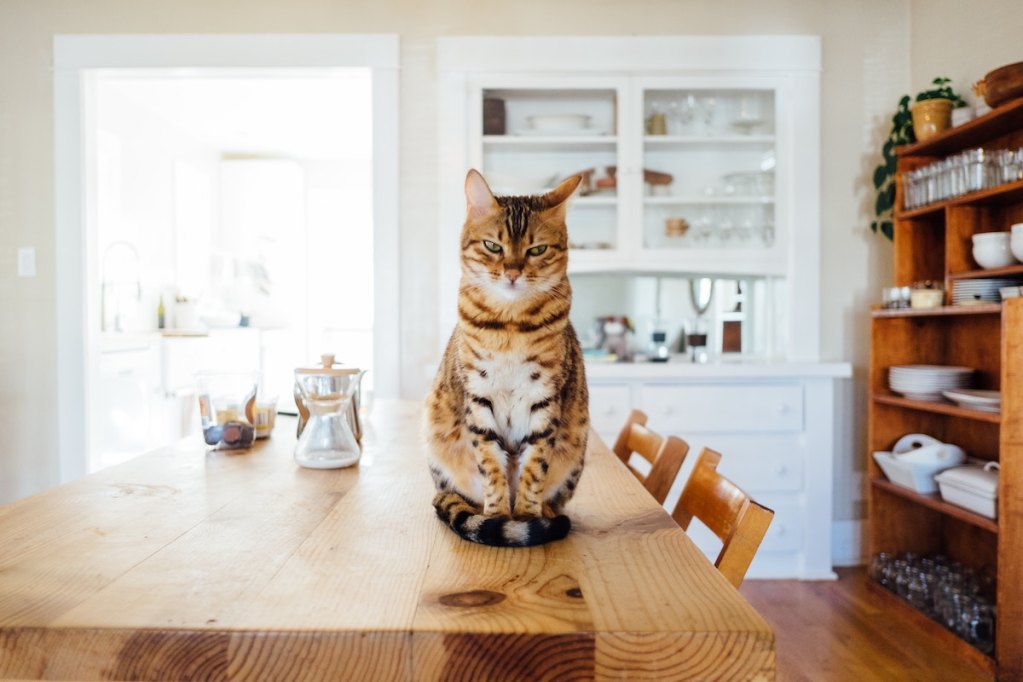Cats are one of the best pets out there because they’re smart, independent, and cute. Unfortunately, they usually go hand in hand with a litter box, which isn’t necessarily our favorite part of the cat equation. Regular litter changing is essential to kitty life but can also come with smells, bugs, and even some risk of disease. Wouldn’t it be better if they could just be potty trained? While it won’t work for every household, some cats can indeed learn to use the toilet.
@_kot_tsar_ #cat #pet #goestothetoilet #toilet #toilet #kitty #catintheCzechRepublic #home #tile #кот #mellygoeslaw #ходитвтуалет #унитаз #туалет #котик #котиквчехии #домашний #плитка
This trending TikTok showcases the steps you need to take to teach your feline to use the bathroom human style.
- First, we see an owner setting up a makeshift litter box on top of the toilet seat. Note you do need a special insert for this first part to hold the litter and cat poo. It goes on top of the toilet bowl and beneath the seat.
- After this is in place, he adds some kitty litter. Our explainer shows the audience how his cat approaches and sniffs about before climbing up to try out his new bathroom. We also discover that the special insert includes a hole in the middle that can open and close, meaning while at first you will include the litter, the goal is to eventually have your pet go straight into the bowl.
- Finally, this handy mouser demonstrates how to potty train a cat.
Commenters loved this trick, with many stating they had tried it or even managed to train their kitty this way. “I tried and was successful,” said nguyentrang8692. However, many started to poke holes in the plan, including cailyn who asked, “What if we only have 1 toilet?” Rosa Lin had an even more important query, “This is good, but how do I train him to use the bidet!?”

Can you teach your cat to use the toilet?
A few additional posters questioned whether this was safe and healthy for the animal. “This is great and all, but it’s not that good for them,” mentioned nads. Of course, many pet parents manage to train their kitties to use the bathroom without any concerns, but you should keep a few things in mind.
First, cats are hard-wired to bury their feces, and that’s why we get them litter boxes in the first place. Some just won’t learn this method at all and might retaliate when you start to take their box away. Others won’t have the agility to jump onto the cat toilet without falling through (and remember, you’ll have to keep that seat down all the time). Lastly, it can become incredibly difficult to board your pet in a facility if they no longer use a litter box since there almost certainly won’t be toilets (you may face similar issues traveling).
All in all, you should discuss with your family and vet to ensure this will work for you and your cat before giving it a shot. In reality, it’s probably more of a TikTok thing, and that’s totally okay.



